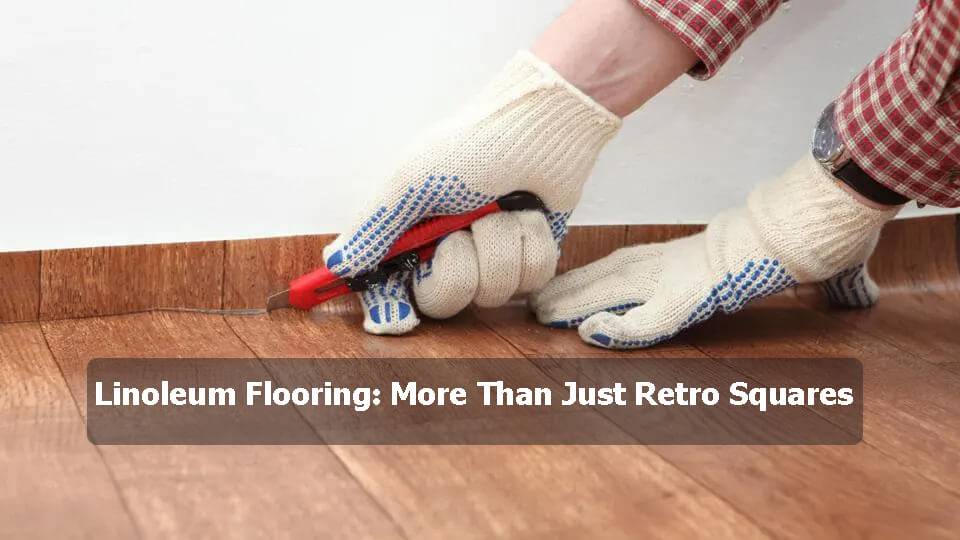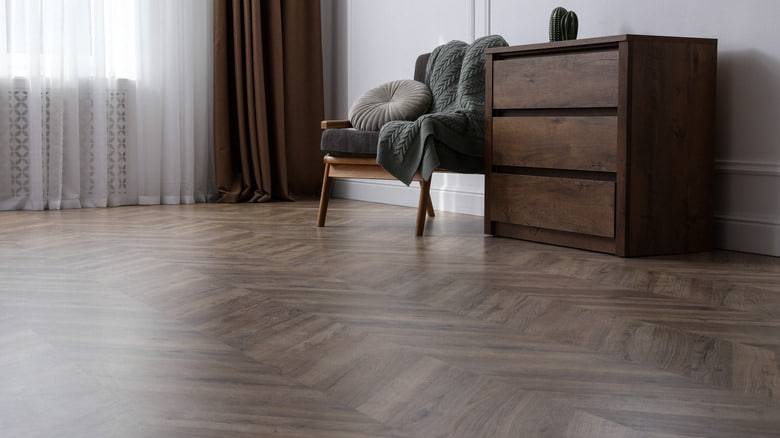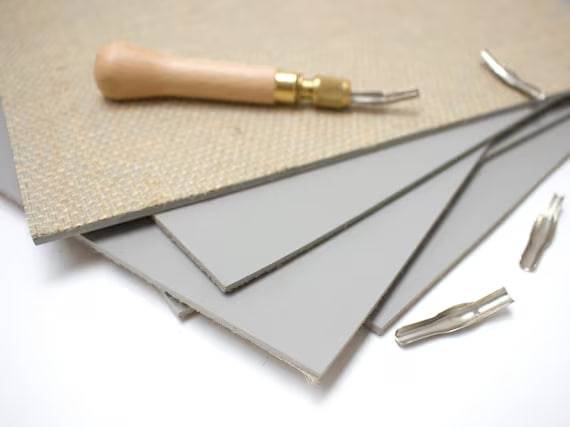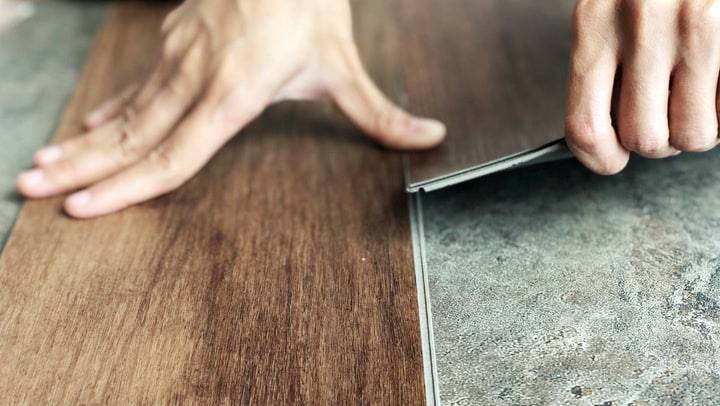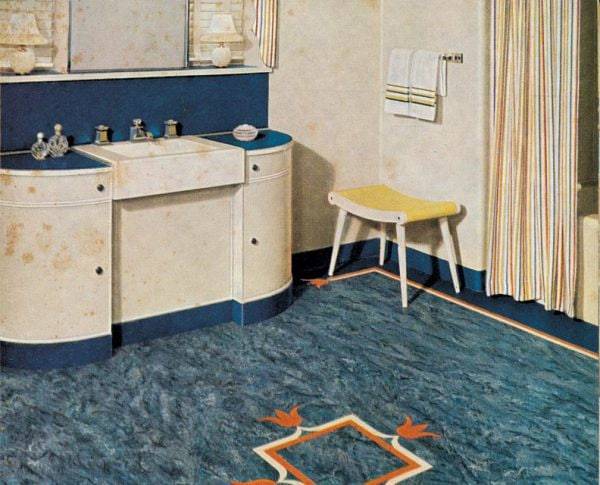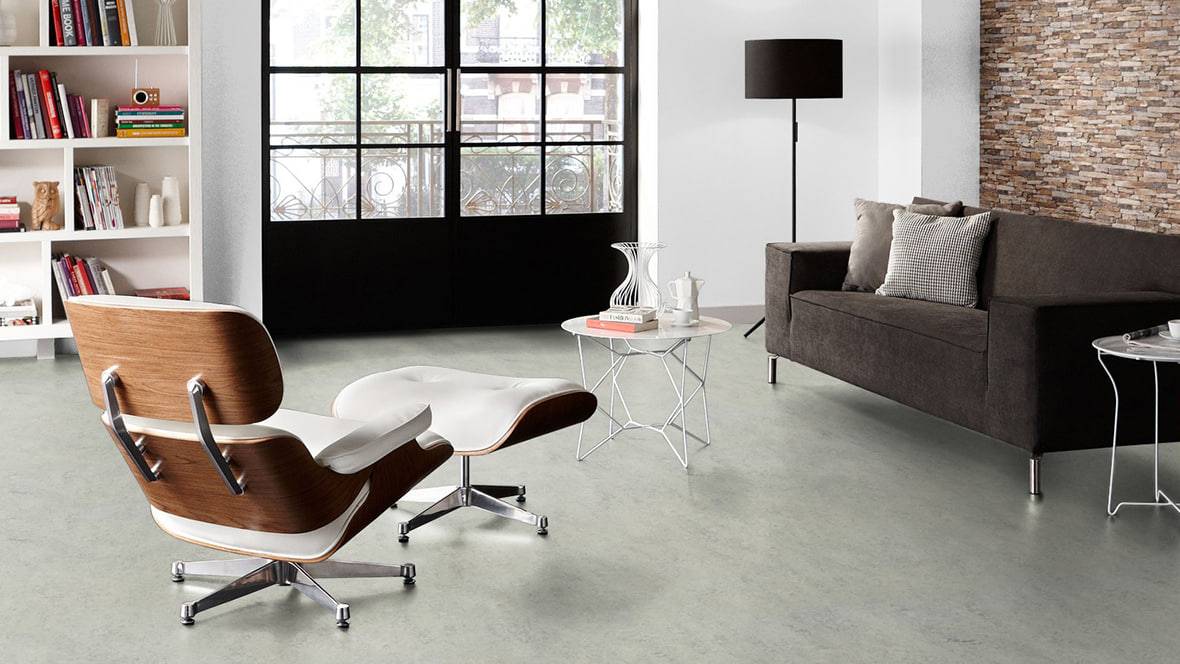Underfoot comfort, eco-friendly materials, and classic charm? If that piques your interest, then linoleum flooring might be the perfect fit for your next renovation project. Often overshadowed by its synthetic cousin, vinyl, linoleum boasts a unique blend of natural ingredients and impressive performance that deserves a closer look. Let’s delve into the world of linoleum flooring, exploring its composition, characteristics, and whether it aligns with your dream home vision.
Linoleum flooring is a type of floor covering made from natural materials, such as solidified linseed oil, pine resin, ground cork dust, sawdust, and mineral fillers. Pigments are often added to the materials to create the desired color finish. It is known for being durable, resilient, and water-resistant.
Weighing the Options: Pros and Cons of Linoleum Flooring
Considering a refresh for your floors? Linoleum, often known for its classic checkerboard patterns in kitchens and schools, might surprise you with its modern versatility. This natural flooring material offers numerous advantages, but like any choice, comes with its own set of drawbacks. Let’s dive into the pros and cons of linoleum flooring to help you decide if it’s the perfect fit for your home.
Pros:
- Durable Champion: This resilient flooring can withstand years of wear and tear, lasting up to 40 years with proper care. Worries about scratches, dents, and stains? Leave them at the door with the linoleum tough surface.
- Nature’s Embrace: Made from sustainable materials like linseed oil and cork dust, linoleum is an eco-conscious choice. It’s biodegradable and free of harmful chemicals, contributing to a healthier home environment.
- Comfort Underfoot: Unlike cold ceramic tiles, linoleum offers a soft and pleasant cushioning for tired feet. Its quiet nature also creates a peaceful atmosphere in your home.
- Water Wary, Not Weary: While not fully waterproof, linoleum provides excellent water resistance. Occasional spills and splashes are no match for its sealed surface, making it suitable for kitchens and bathrooms with proper precautions.
- Design Delight: Don’t underestimate the aesthetic possibilities! Linoleum comes in a variety of colors, patterns, and even tile forms, allowing you to personalize your space with a unique touch.
Cons:
- Price Point Pondering: Compared to some flooring options like vinyl, linoleum tends to be more expensive. However, its longevity and eco-friendly qualities may even out the cost in the long run.
- DIY Dilemmas: Installation can be tricky, requiring specific tools and skills. Hiring a professional might be necessary for a flawless and long-lasting result.
- Maintenance Matters: To maintain its water resistance and shine, linoleum requires periodic resealing. Regular cleaning and care are key to keeping it looking its best.
- Moisture Menace: While water-resistant, linoleum isn’t waterproof. Areas prone to constant moisture, like laundry rooms or showers, might be better suited for different materials.
- Fading Footprint: Like many things, linoleum can fade or yellow over time without proper maintenance. Careful cleaning and sun protection are essential to preserve its vibrant look.
Sheet Linoleum Flooring: Seamless Style and Sustainable Choice
Sheet linoleum flooring, the classic and versatile format, deserves a spotlight! Made from natural materials like linseed oil, cork dust, and wood flour, it offers a unique blend of performance, design, and eco-friendliness. If you’re considering sheet linoleum for your flooring project, here’s all you need to know:
Advantages:
- Seamless Beauty: Say goodbye to unsightly seams! Sheet linoleum creates a smooth, unified look across large areas, ideal for open floor plans or spacious rooms.
- Design Flexibility: Available in a wide range of colors, patterns, and textures, sheet linoleum caters to diverse design styles. From classic marbled tones to modern geometric prints, there’s an option for everyone.
- Durable Champion: Built to last, sheet linoleum can withstand years of wear and tear, offering up to 40 years of life with proper care. Its resilient surface resists scratches, dents, and stains, making it perfect for high-traffic areas.
- Natural Embrace: Eco-conscious homeowners rejoice! Sheet linoleum is a sustainable choice, made from renewable and biodegradable materials. It’s free of harmful chemicals, contributing to a healthier indoor environment.
- Sound Deadening: Thicker sheet linoleum options provide excellent soundproofing, creating a quieter and more peaceful atmosphere in your home.
Things to Consider:
- Installation Expertise: While DIY enthusiasts might attempt it, professional installation is highly recommended for flawless results. Sheet linoleum requires specific tools and techniques for proper adhesion and seam finishing.
- Maintenance Matters: To maintain its water resistance and shine, sheet linoleum needs periodic resealing and regular cleaning. Proper care is key to preserving its beauty and longevity.
- Moisture Management: While water-resistant, it’s not waterproof. Avoid using sheet linoleum in areas prone to constant moisture, like laundry rooms or showers.
Sure, here’s what I found about Linoleum Tiles:
Linoleum tiles, also known as lino tiles, are a popular flooring option that offers a combination of durability, sustainability, and design flexibility. Made from natural materials like linseed oil, cork dust, and wood flour, they are a more eco-friendly alternative to vinyl tiles.
Advantages of Linoleum Tiles:
- Durable: Linoleum tiles are known for their resilience and can withstand years of wear and tear, making them suitable for high-traffic areas.
- Easy to install: Compared to sheet linoleum, tiles are easier to install, even for DIY enthusiasts. Many have click-lock systems that allow for quick and hassle-free installation.
- Design versatility: Linoleum tiles come in a wide variety of colors, patterns, and sizes, allowing you to create unique and customized designs for your floors. You can even mix and match different colors and patterns to achieve a personalized look.
- Water-resistant: While not waterproof, linoleum tiles are water-resistant and can handle occasional spills and splashes. This makes them suitable for kitchens, bathrooms, and other areas prone to moisture.
- Comfortable underfoot: Linoleum tiles provide a soft and comfortable surface underfoot, making them ideal for areas where you spend a lot of time standing or walking.
- Sustainable: Linoleum is a natural and biodegradable material, making it a more eco-friendly choice than vinyl tiles.
Things to Consider:
- Cost: Linoleum tiles can be more expensive than vinyl tiles.
- Maintenance: While relatively low-maintenance, linoleum tiles require periodic resealing to maintain their water resistance and shine.
- Not waterproof: Although water-resistant, they are not suitable for areas exposed to constant moisture.
Linoleum Planks: Modern Style Meets Natural Durability
Linoleum planks are the newest addition to the linoleum family, offering a unique blend of modern aesthetics, natural materials, and easy installation. They’re essentially thicker tiles designed to resemble wood planks, giving you the classic warmth of wood with the benefits of linoleum:
- Durability: Like other linoleum formats, planks are known for their resilience, lasting 20-40 years with proper care. They resist scratches, dents, and stains, making them ideal for busy households.
- Natural Choice: Made from renewable materials like linseed oil, cork dust, and wood flour, linoleum planks are a sustainable and eco-friendly option. They’re free from harmful chemicals, contributing to a healthier indoor environment.
- Water-Resistant: While not waterproof, planks offer good water resistance, handling occasional spills and splashes. This makes them suitable for kitchens, bathrooms, and entryways.
- Comfortable Underfoot: The natural materials provide a soft and cushioning surface underfoot, creating a more comfortable experience compared to hard flooring options.
- Easy Installation: Unlike sheet linoleum, planks often have a click-lock system that allows for quick and easy installation, making them perfect for DIY enthusiasts.
- Modern Look: The plank format creates a sleek and contemporary look, complementing various modern design styles. They come in a range of colors and wood-grain patterns to match your aesthetic preferences.
Things to Consider:
- Cost: Linoleum planks tend to be more expensive than vinyl flooring but offer greater durability and sustainability.
- Maintenance: Similar to other linoleum formats, planks require periodic resealing to maintain their water resistance and shine. Regular cleaning is also essential.
- Not Waterproof: Avoid using planks in areas with constant moisture exposure, like showers or laundry rooms.
Inlaid linoleum
Inlaid linoleum, the crown jewel of linoleum flooring, elevates the game with its exquisite beauty, intricate details, and unparalleled craftsmanship. It involves meticulously hand-cutting and assembling pieces of various colored linoleum to create stunning geometric patterns, mosaics, and even figurative designs. This art form transcends mere flooring, becoming a decorative centerpiece that adds timeless elegance and a touch of luxury to any space.
Unique Advantages:
- Unmatched Beauty: Inlaid linoleum offers a level of visual sophistication unmatched by other flooring options. The intricate patterns and vibrant colors can be customized to create truly unique and breathtaking works of art.
- Durability: This flooring technique utilizes solid pieces of linoleum, resulting in exceptional durability that can last for generations with proper care.
- Timeless Appeal: Inlaid linoleum designs often draw inspiration from historical periods and classic styles, adding a touch of vintage charm to modern spaces.
- Bespoke Designs: Unlike printed patterns, inlaid linoleum allows for complete customization, enabling you to create a one-of-a-kind floor that reflects your personal taste and style.
Things to Consider:
- High Cost: The intricate craftsmanship and meticulous attention to detail make inlaid linoleum significantly more expensive than other linoleum formats.
- Complex Installation: Installing inlaid linoleum requires specialized skills and experience, making professional installation essential.
- Maintenance: While durable, inlaid linoleum still requires regular cleaning and occasional resealing to maintain its beauty and longevity.
Choosing Inlaid Linoleum:
Inlaid linoleum is an investment in both aesthetics and craftsmanship. It’s best suited for homeowners who:
- Value unique and personalized design.
- Appreciate high-quality, handcrafted products.
- Are willing to invest in a lasting and luxurious flooring solution.
- Have access to experienced professionals for installation and maintenance.
Marmoleum flooring
Marmoleum is a type of linoleum flooring that is made from natural materials, including linseed oil, cork dust, wood flour, and limestone. It is a sustainable and eco-friendly flooring option that is also durable, easy to maintain, and comfortable underfoot.
Marmoleum is available in a wide variety of colors, patterns, and textures, so you can find the perfect look for your home. It is also available in a variety of formats, including sheets, tiles, and planks, so you can choose the format that best suits your needs.
Advantages of Marmoleum Flooring:
- Sustainable: Marmoleum is made from natural materials that are renewable and biodegradable. It is also a low-VOC flooring option, which means that it does not emit harmful chemicals into the air.
- Durable: Marmoleum is a very durable flooring option that can withstand years of wear and tear. It is also resistant to scratches, dents, and stains.
- Easy to Maintain: Marmoleum is a very easy-to-maintain flooring option. It can be cleaned with a damp mop and a mild detergent.
- Comfortable Underfoot: Marmoleum is a comfortable flooring option that is soft and warm underfoot.
Things to Consider:
- Cost: Marmoleum can be more expensive than some other types of flooring, such as vinyl or laminate.
- Installation: Marmoleum can be difficult to install, so it is best to hire a professional.
- Water Resistance: Marmoleum is not waterproof, so it is not ideal for areas that are prone to moisture, such as bathrooms or laundry rooms.
Coclusion
In conclusion, the world of linoleum flooring offers a unique combination of natural materials, impressive performance, and diverse design possibilities. Whether you prioritize seamless beauty with sheet linoleum, creative customization with tiles, modern flair with planks, or the pinnacle of handcrafted artistry with inlaid designs, there’s a linoleum format to suit your needs and aesthetic preferences. Remember, each option comes with its own set of considerations, so carefully weigh factors like cost, installation requirements, and maintenance practices before making your decision. If sustainability and natural materials resonate with you, then linoleum, particularly Marmoleum with its vibrant colors and ease of care, could be the perfect eco-conscious foundation for your dream home. Ultimately, the choice is yours – embrace the timeless charm and enduring qualities of linoleum, and create a floor that reflects your unique style and vision.

